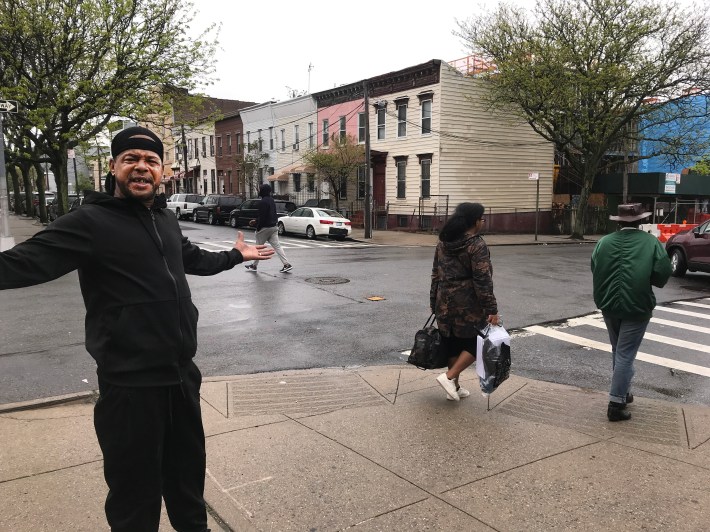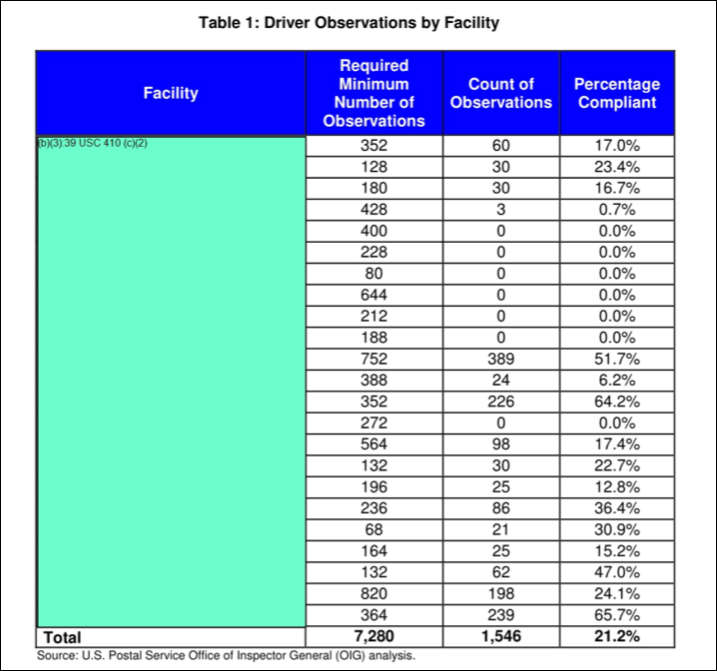Return to sender!
The United States Postal Service Inspector General won't release the locations where its auditors found egregious fleet safety violations, citing a rule protecting "trade secrets ... which, under good business practice, would not be publicly disclosed."
The material in question is certainly not a trade secret. In 2012, the Inspector General's office investigated whether managers at 23 postal service regions were regularly assessing the driving records of its delivery workers, many of whom operate large trucks under enormous pressures to deliver through rain, snow, and gloom of night and against myriad competitors.

The audit found that none of the regions' managers “completed the required minimum [safety] observations” of drivers. Seven regions did not do any safety observations at all. And only two regions did more than 60 percent of the required safety assessments.
But the report was redacted, so it is impossible to know which regions had the worst records. On May 8, Streetsblog requested an unredacted version so that we could independently assess which Postal Service regions were completely ignoring safety, which were mostly ignoring safety, and which were making at least a decent effort to assess its employees' driving records.
On May 15, Kathy Kikel of the Postal Service Inspector General's Freedom of Information Act office rejected our request, citing "Exemption (b)(3), 5 U.S.C. § 552(b)(3)." A footnote in her letter explained why vital information about truck drivers' safety records can be kept from the public.
Exemption (b)(3) provides agencies may withhold records exempted from disclosure by another statute that “establishes particular criteria for withholding or refers to particular types of matters to be withheld.” Title 39 U.S.C § 265.14, 410(c)(2) provides “information of a commercial nature, including trade secrets, whether or not obtained from a person outside the Postal Service, which under good business practice would not be publicly disclosed,” is exempt from the disclosure requirements of the FOIA. This exemption was enacted as part of the Postal Reorganization Act of 1970 and operates both independently and as an exempting statute within the scope of Exemption 3. This provision permits the Postal Service to withhold the unit pricing information.
We considered Kikel's use of the exemption to be overzealous, so we called her and asked why she felt the exemption covers information at the very heart of the audit report's purpose.
"Because it does," she said.
We argued that it's disingenuous to simply say a rule covers the thing you want it to cover without explaining why, but Kikel disagreed.
"The Postal Service regulation, Title 39, says I can’t give that information out," she said. "There are reasons. We don’t necessarily tell where things have happened. You can’t [give out that information] because it could cause harm to the Postal Service."

Indeed, it might — which could explain why the redacted audit report itself was mysteriously taken down from the Inspector General's website entirely after Streetsblog started asking about it. We asked Kikel about that, but she did not get back to us. (The audit report mysteriously re-appeared after we left our voicemail. It remains redacted, however.)
At issue is something central to the Postal Service's work in the city and, indeed, the nation: safety.
Postal Service vehicles operate without license plates, so the NYPD does not issue citations for violations or parking infractions, and therefore does not track the USPS' record. Similarly, the Department of Finance does not have records of how much revenue in parking tickets the Postal Service should be paying for all the bus and bike lane blocking its drivers are committing. Other companies, such as FedEx and UPS, do pay traffic fines and are written up for moving violations.
The issue has drawn greater scrutiny in the days since a Postal Service truck driver ran over and killed Charles McClean on a Brooklyn street earlier this month. The driver was not issued any summonses at the time, and McClean family members complained that there is no accountability for drivers piloting vehicles without license plates.
The NYPD told Streetsblog that it does not know how many crashes have involved Postal Service vehicles. The House Oversight Committee, which oversees the USPS, has not returned calls. The Postal Service has not answered Streetsblog's questions about its drivers' safety records. And City Council Transportation Committee Chairman Ydanis Rodriguez has also declined to comment on city efforts to rein in reckless driving by the Postal Service.
Streetsblog will appeal Kikel's ruling and update this story in the future.






